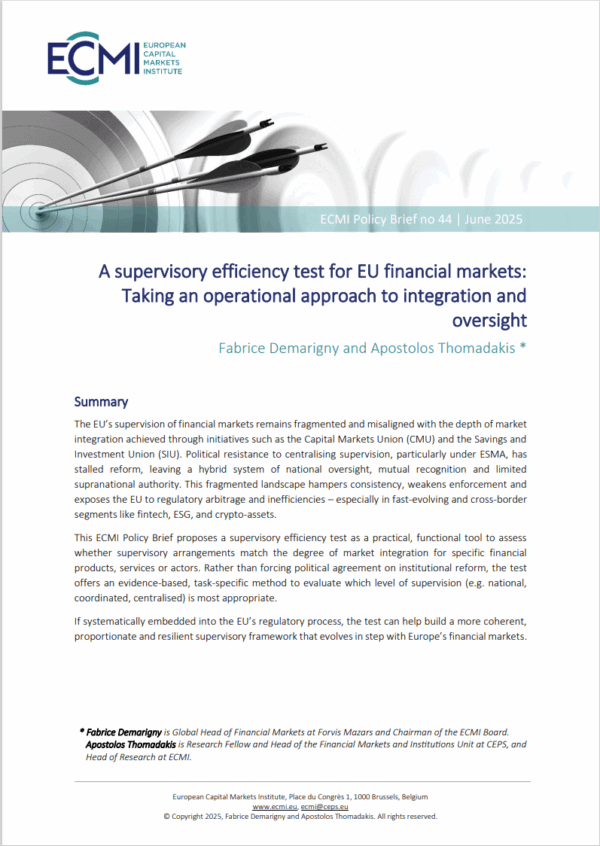A comprehensive review of the financial services landscape is necessary for the EU to address structural inefficiencies, ensure market dynamism and support long-term economic growth. The report emphasises that while Europe’s financial system has expanded in size and complexity, and there have been efforts to diversify and integrate financial markets, progress remains uneven, with fragmented banking systems, regulatory inconsistencies and a lack of capital market depth. Enhancing the global competitiveness of EU financial markets means prioritising regulatory reforms that foster innovation, reduce costs and promote cross-border investments – starting with the robust enforcement of existing rules.
‘We all want Europe to progress, and we believe Europe has the capacity to do so. Financial markets can make a positive difference but they can also cause setbacks. The question is how we ensure the former and avoid the latter.’
Jesper Berg, Task Force Chair, and Former Director-General of the Danish Financial Supervisory Authority
Formed in October 2023, a CEPS-ECMI-ECRI Task Force brought together a group of market operators and infrastructure providers, central bank representatives, regulators and academics to take part in in-depth discussions.
Specifically, the report calls for an agenda that focuses on:
- Enhancing enforcement structures with improved resources and quicker processes, as well as involving European supervisory authorities to adapt to growing regulatory complexity.
- Gradually returning to principles-based legislation to simplify the regulatory landscape, avoiding excesses that hamper innovation and reduce competitiveness.
- Boosting competitiveness by ensuring a flexible and efficient financial regulatory framework that allows EU banks to compete with international institutions, with proportionality for smaller banks.
- Levelling the playing field by strengthening crisis management and deposit insurance, expanding the scope of resolution and ensuring the consistent use of public funds in bank resolution.
- Steering clear of fruitless political debates on the European deposit insurance scheme and instead focus efforts on achievable improvements in banking sector integration.
- Unlocking EU savings by promoting affordable and sizeable funded pension and long-term savings schemes and making Europe more attractive for domestic and international capital investment.
- Avoiding misguided policy recommendations by accurately diagnosing capital market development needs, particularly with respect to the EU securitisation framework.
- Adopting competition-based measures to improve market efficiency, reduce fees, and promote passive investment products for more transparent and competitive investor outcomes.
- Integrating trading and post-trading infrastructure to address fragmentation and ensure fair competition across trading venues, central securities depositories, and clearing systems.
- Promoting greater financial literacy among all age groups to enable broader investment participation and support the development of the EU’s capital markets.
To read a CEPS Expert Commentary that summarises the report’s key findings, click here.








